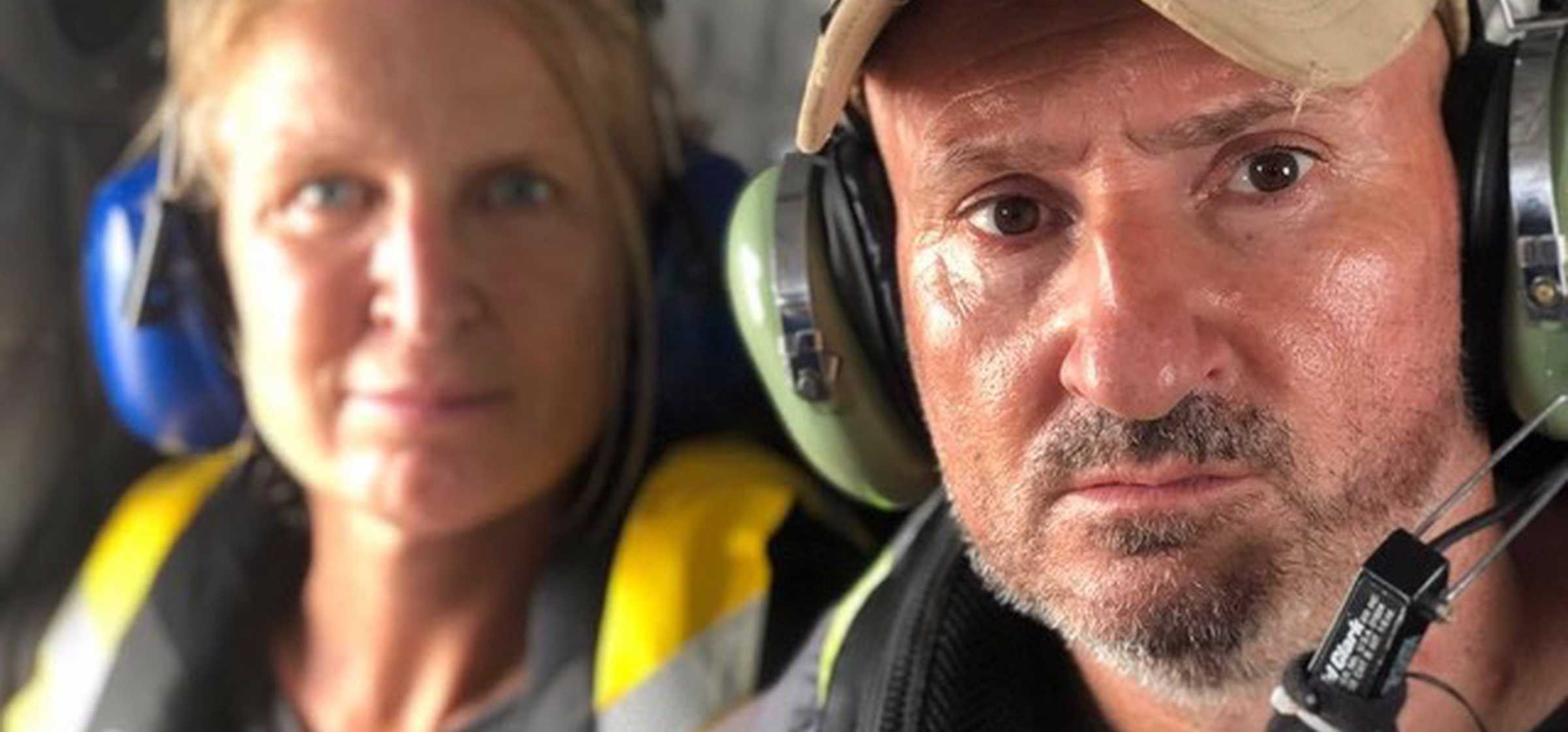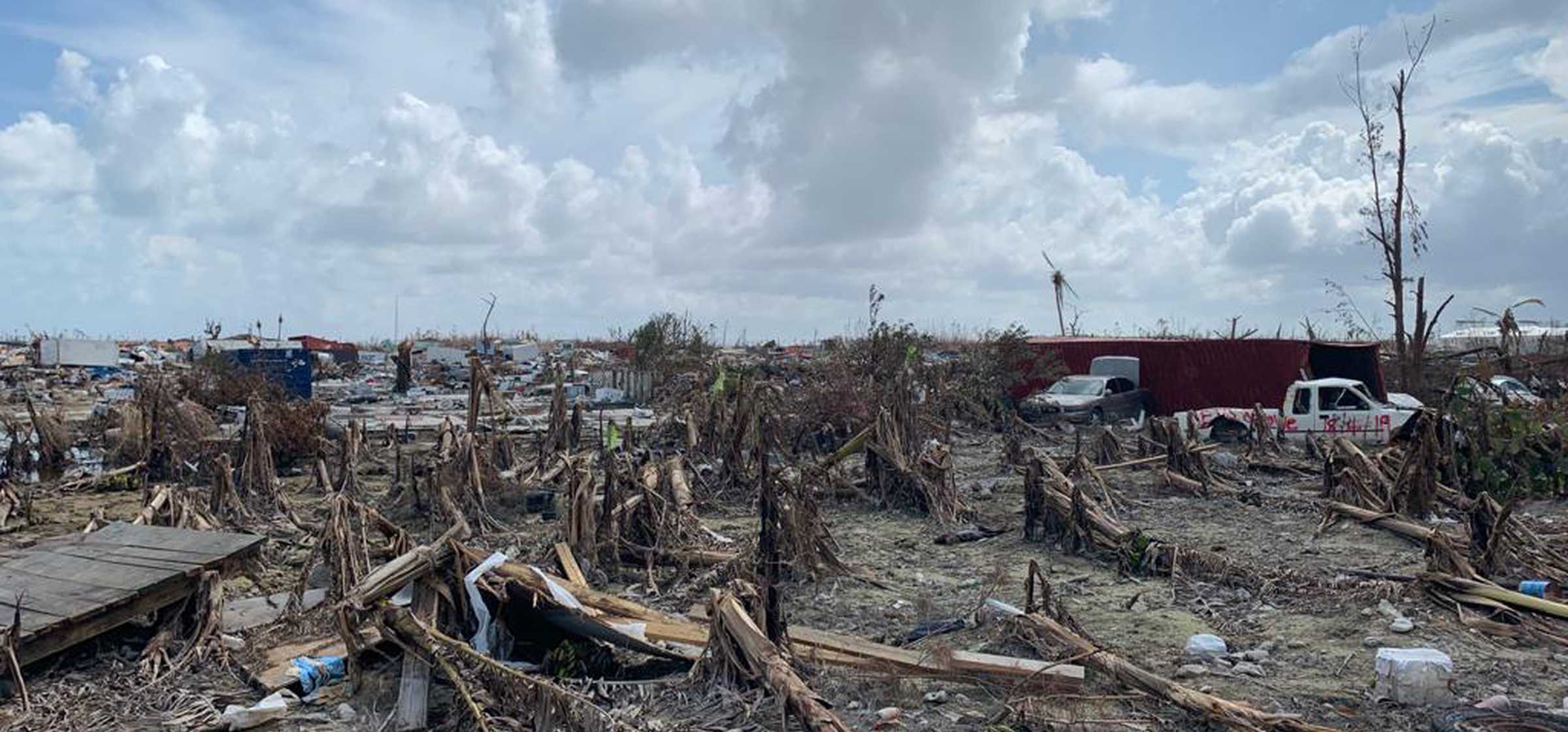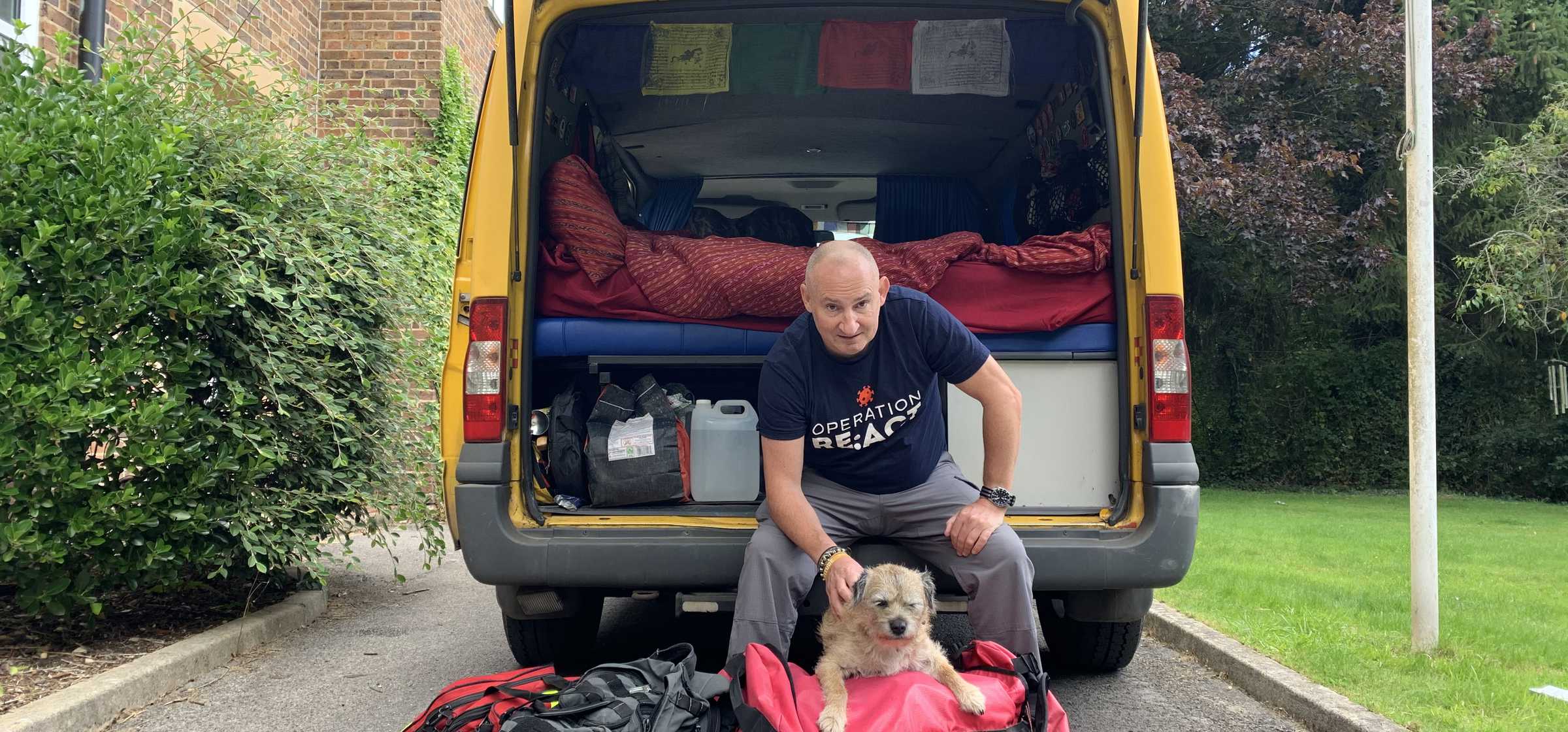Paul Taylor: Entering the unknown (part 1)
Posted by Alex Whitty 04th September 2020 Interviews
Estimated Reading Time: 8 mins
As RE:ACT Operations Response Manager, Paul Taylor’s job is to deploy anywhere in the world at a moment’s notice, often arriving in chaotic environments needing to quickly orientate and embed himself with the local community and response effort. His first reports are critical to RE:ACT’s operational success.
Paul joined the Army at 16 and served in the infantry for 26 years, deploying around the world, including to Afghanistan in 2009. Upon leaving the military, Paul completed a degree in English Literature and considered a new career in teaching. It was the devastating earthquake that struck Nepal in 2015 that led Paul to humanitarian work, as one of the UK veteran volunteers who formed a response team that would later become RE:ACT.
In Part 1, Paul talks us through his preparation and describes what it’s like to head into the immediate aftermath of a disaster.
You’re the first person RE:ACT sends as soon as a disaster strikes so you need to be ready – do you always keep a bag packed?
“I’ve always got a bag packed with the essential kit I need to go anywhere. The most important item is a fully charged satellite phone for comms, and then a Garmin tracker so the team at HQ can track my location, which also sends text messages. Then a water bottle with purifier and a few ration packs. I take eco-friendly soap which I can use in rivers and doubles-up for washing my clothes. I also take a medical kit, toothbrush, toothpaste, small roll-on deodorant, a small travel towel and a small sleeping bag – that often comes in handy before I’ve even arrived in country because I can be waiting for hours in airports for connecting flights.
“The majority of our deployments are to hot climates, so I don’t take a lot of clothing. I’ve always got a pair of robust trousers with big pockets for maps etc., a pair of lightweight hiking boots, a couple of RE:ACT t-shirts, a safari shirt for super-hot temperatures, cargo shorts, closed-toed sandals, a brimmed hat and sunglasses. And then three pairs of socks and three pairs of underwear – one to wear, one to wash and dry and one as emergency back up!”
Bag’s packed. What else do you do to get yourself prepared?
“The Ops Team at HQ in Chilmark is constantly monitoring and assessing threats and emerging situations. Over the years we’ve built up a good network of international humanitarian contacts and they’re often our first sources of information but we can’t know everything and much of my responsibility and that of the response teams that follow is to build that situational awareness and help develop a common operating picture.
“Every crisis, every disaster, is different. You can’t prepare for the unknown but you need to be comfortable with that – that’s your preparation. You have to rely on your training and your experience and trust the team around you. That’s what RE:ACT does. We don’t prepare for one thing – we prepare for anything. We’re known for our agility, resilience and flexibility so we can adapt and respond to situations and needs as they emerge, whatever they may be.”
What’s going through your mind when you get the call to go?
“Nervous anticipation. I normally take Lizzy who is my wing-person and we feel the burden of expectation. You are the key to unlocking everything that follows. We might be flying into a part of the world where we will experience subsequent hazards, be that aftershocks or hurricanes, so you’re living through that and looking after your partner, while they’re looking after you.
“On the plane, I get myself mentally prepared and read myself in. I download a travel guide and I have a look through available literature and maybe download a book. I try to get a bit of a feel for the etiquette, culture and politics of where I’m going. That’s so important because Lizzy and I won’t achieve anything on our own.
“You can’t play the role of the hero coming in to save the day, directing people or telling them what they should be doing. We don’t have that right and that’s not our purpose. We want to help people, and I’ve found the most effective method is through collaboration and using our experience to bring people together and guide them in the right direction where necessary.”

What do you do when you first land?
“Soon as you disembark, and from the air before you land, you’re surveying and assessing, building up atmospherics, getting a feel for the situation and the environment you’re in. You run on instinct – I’m a big believer in tuning yourself in and getting a feel for a place and its people.
“Our first practical task is to gain access. Sometimes there can be lots of politics at play, people with agendas you’ve got to negotiate your way around. Much of the time it comes from a good place, people wanting to help but not knowing how. We help to unlock that, managing situations, understanding and assessing needs, and collaborating to find solutions. It requires lots of meetings, liaison and emotional intelligence but that’s where our training and experience comes in.”
Wouldn’t it be better to send more of you in that first response?
“No. We wouldn’t be as effective. Our response teams follow rapidly but we’re only going to deploy them if there’s a need for them to go. A small team means less kit and less of a burden on local infrastructure, so we can be self-sustaining and move fast, and we’re better placed to navigate through the challenges of the immediate aftermath of a disaster.
“We’ve got to say with conviction that we’re going to send back a plan to supplement the humanitarian effort and we’re not just flag planting. We’re not just saying we’re a disaster response charity and we’re in Indonesia; we’re saying we’ve sent our team forward because we’ve got a proven capability that is going to have an effect on people’s lives in this disaster.”
It must be challenging to witness so much devastation and suffering. How do you deal with that and ensure you’re able to effectively do your job?
“You focus on the people you’re there to help. We’re present during people’s darkest hour, witnessing immense suffering. When you’re in that environment, seeing it at close hand, you experience a human connection at its most basic, primal level – someone is in distress and you can help them. It focuses you.
“You want them to know and understand that you’re there with them and alongside them, that they’re not facing this alone. You’re not going to allow them to suffer, you’re going to do something; you’re going to act.
“Sometimes it can feel overwhelming and you might feel powerless, you might get frustrated, because you can’t immediately solve their problem. I have learnt to identify those frustrations as a normal human reaction but then park them. The best way to help those in need is with a clear head and to think objectively.”
When you’re in the immediate aftermath of disaster and its chaos, where do you start?
“I always say the way to solve a big problem is through a number of smaller solutions. And you’re often one of those smaller solutions. If you can help one person during that day then that’s someone who might not have received any help if you hadn’t deployed. You start somewhere and eventually it will grow and have an impact.
“It’s a huge privilege to be in a position where you’re able to help people and your actions significantly impact the quality of their lives, and I don’t take that lightly. To me, being a humanitarian is about being a decent human being. You help the people you can, wherever you are. When you do that in these situations, it means saving lives. It’s always hard to witness suffering but you take comfort in doing something about it.
“In Lombok, after the 2018 earthquake, as I was walking amongst the rubble, assessing the devastation, a local man approached me and asked where I’d come from. I said I’d come from the UK. He asked me why and I told him I’d come to help. He said he thought they’d been forgotten.
“Those are the people you’re there for and they’re the moments that lift you.”

It’s a year since Hurricane Dorian hit The Bahamas. What comes to mind when you think back to that deployment?
“My first thought is of the complete and utter devastation we witnessed on arrival, which was the worst I’ve seen to date. I also think about all the people we met on our travels whose lives were massively impacted. Many of them are now friends and our thoughts are with them as they live through another hurricane season and the very realistic possibility that another huge storm could make landfall in The Bahamas.
“Finally, I think back to our team and how incredibly proud I am of their actions throughout that deployment, seeing our volunteers ‘living’ their humanitarian principles in testing conditions. We became advocates for the vulnerable and disenfranchised across the affected islands, helping thousands of people in desperate need. We all live with the consequences of our actions for the rest of our lives so it’s important to reconcile with yourself that you did the right thing when you had the chance to.”
What do you do at the end of the day to try to switch off and relax?
“I read. I always take my kindle. It has my travel guides that I read en-route but to relax I read something completely unrelated to disasters, like a novel.
“I’ve learnt that in order to keep yourself going you’ve got to find a way to switch off. I’ve seen people put themselves under enormous self-induced pressure and just run themselves into the ground. The days are long and exhausting but you’ve got to know when to stop so you can go again the next day. Sometimes you keep going through the night but whenever I can, I make sure I go to bed at a reasonable time between 10pm and 11pm. I read for about half an hour and it clears my mind and I get a good sleep.”
Do you miss home?
“I’m used to being away for long periods; I had that in the army and this is a continuation of that lifestyle. It takes a certain type to be able to do this job. You have to compartmentalise things and not take everything with you but focus on your job.
“In the immediate aftermath of a disaster communications infrastructure is often down so we communicate with HQ using a small satellite dish on pre-arranged comms schedules. After the first couple of weeks it becomes easier to keep in regular contact with people at home and keep up to date with what’s happening in the wider world.
“My girlfriend, family and friends know what to expect from my job and they’re very understanding so that makes things easier for me. And I don’t need to worry about Herc, my dog. When he sees me grabbing my red duffel bag something clicks and he realises I’m going away and looks a bit sad but he’s used to it. He gets looked after and spoilt when I’m away. When he’s with me it’s quite a tough regime with lots of exercise and no treats so I think he probably sees it as a bit of a relaxing break!”
Read Part 2.

Help us continue our life-saving work at home and overseas. Please give what you can.
